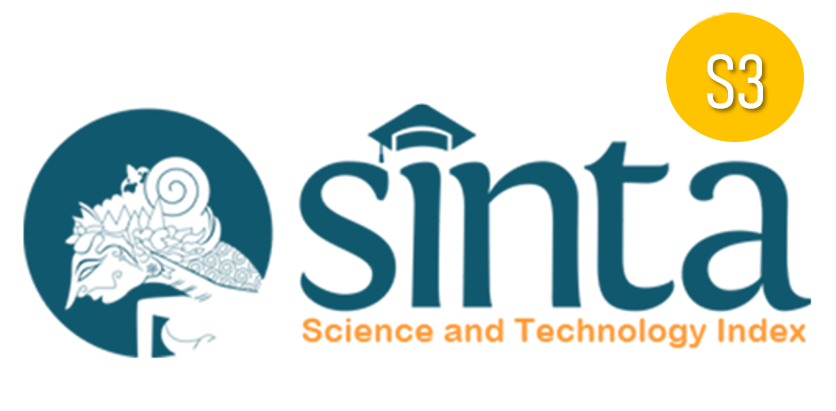Enhancing Student Engagement through Action Research: A Collaborative Approach in Secondary Education for Achieving Sustainable Development Goals
Abstract
Keywords
Full Text:
PDFReferences
Appleton, J. J., Christenson, S. L., and Furlong, M. J. (2008). Student engagement with school: Critical conceptual and methodological issues of the construct. Psychology in the Schools, 45(5), 369–386.
Braun, V., and Clarke, V. (2006). Using thematic analysis in psychology. Qualitative Research in Psychology, 3(2), 77–101.
Djirong, A., Jayadi, K., Abduh, A., Mutolib, A., Mustofa, R.F., and Rahmat, A. (2024). Assessment of student awareness and application of eco-friendly curriculum and technologies in Indonesian higher education for supporting sustainable development goals (SDGs): A case study on environmental challenges. Indonesian Journal of Science and Technology, 9(3), 657-678.
Fredricks, J. A., Blumenfeld, P. C., and Paris, A. H. (2004). School engagement: Potential of the concept, state of the evidence. Review of Educational Research, 74(1), 59–109.
Glovatskii, O., Kalimbetov, B., Ergashev, R., Kholbutaev, B., Pardaev, M., Ergasheva, G., Nasirova, N., and Khimmataliev, D.O. (2025). Modernization of Submersible Pump Designs for Sustainable Irrigation: A Bibliometric and Experimental Contribution to Sustainable Development Goals (SDGs). Indonesian Journal of Science and Technology, 10(3), 427.
Johnson, D. W., and Johnson, R. T. (2009). An educational psychology success story: Social interdependence theory and cooperative learning. Educational Researcher, 38(5), 365–379.
Kerans, G., Sanjaya, Y., Liliasari, L., Pamungkas, J., and Ate, G., Y. (2024). Effect of substrate and water on cultivation of Sumba seaworm (nyale) and experimental practicum design for improving critical and creative thinking skills of prospective science teacher in biology and supporting sustainable development goals (SDGs). ASEAN Journal of Science and Engineering, 4(3), 383-404.
Krishnan, A., Al-Obaidi, A.S.M., and Hao, L.C. (2024). Towards sustainable wind energy: A systematic review of airfoil and blade technologies over the past 25 years for supporting sustainable development goals (SDGs). Indonesian Journal of Science and Technology, 9(3), 623-656.
Merzouki, M., Khibech, O., Fraj, E., Bouammali, H., Bourhou, C., Hammouti, B., Bouammali, B., and Challioui, A. (2025). Computational engineering of malonate and tetrazole derivatives targeting SARS-CoV-2 main protease: Pharmacokinetics, docking, and molecular dynamics insights to support the sustainable development goals (SDGs), with a bibliometric analysis. Indonesian Journal of Science and Technology, 10(2), 399-418.
Nurramadhani, A., Riandi, R., Permanasari, A., and Suwarma, I.R. (2024). Low-carbon food consumption for solving climate change mitigation: Literature review with bibliometric and simple calculation application for cultivating sustainability consciousness in facing sustainable development goals (SDGs). Indonesian Journal of Science and Technology, 9(2), 261-286.
Skinner, E. A., and Belmont, M. J. (1993). Motivation in the classroom: Reciprocal effects of teacher behavior and student engagement across the school year. Journal of Educational Psychology, 85(4), 571–581.
Waardhani, A.W., Noviyanti, A.R., Kusrini, E., Nugrahaningtyas, K.D., Prasetyo, A.B., Usman, A., Irwansyah, F.S., and Juliandri, J. (2025). A study on sustainable eggshell-derived hydroxyapatite/CMC membranes: Enhancing flexibility and thermal stability for sustainable development goals (SDGs). Indonesian Journal of Science and Technology, 10(2), 191-206.
Yustiarini, D., Soemardi, B.W., and Pribadi, K.S. (2025). Integrating multi-stakeholder governance, engineering approaches, and bibliometric literature review insights for sustainable regional road maintenance: Contribution to sustainable development goals (SDGs) 9, 11, and 16. Indonesian Journal of Science and Technology, 10(2), 367-398.
Zepke, N., and Leach, L. (2010). Improving student engagement: Ten proposals for action. Active Learning in Higher Education, 11(3), 167–177.
DOI: https://doi.org/10.17509/ijert.v5i3.86174
Refbacks
- There are currently no refbacks.
Copyright (c) 2025 Universitas Pendidikan Indonesia (UPI)

This work is licensed under a Creative Commons Attribution-ShareAlike 4.0 International License.







.png)




